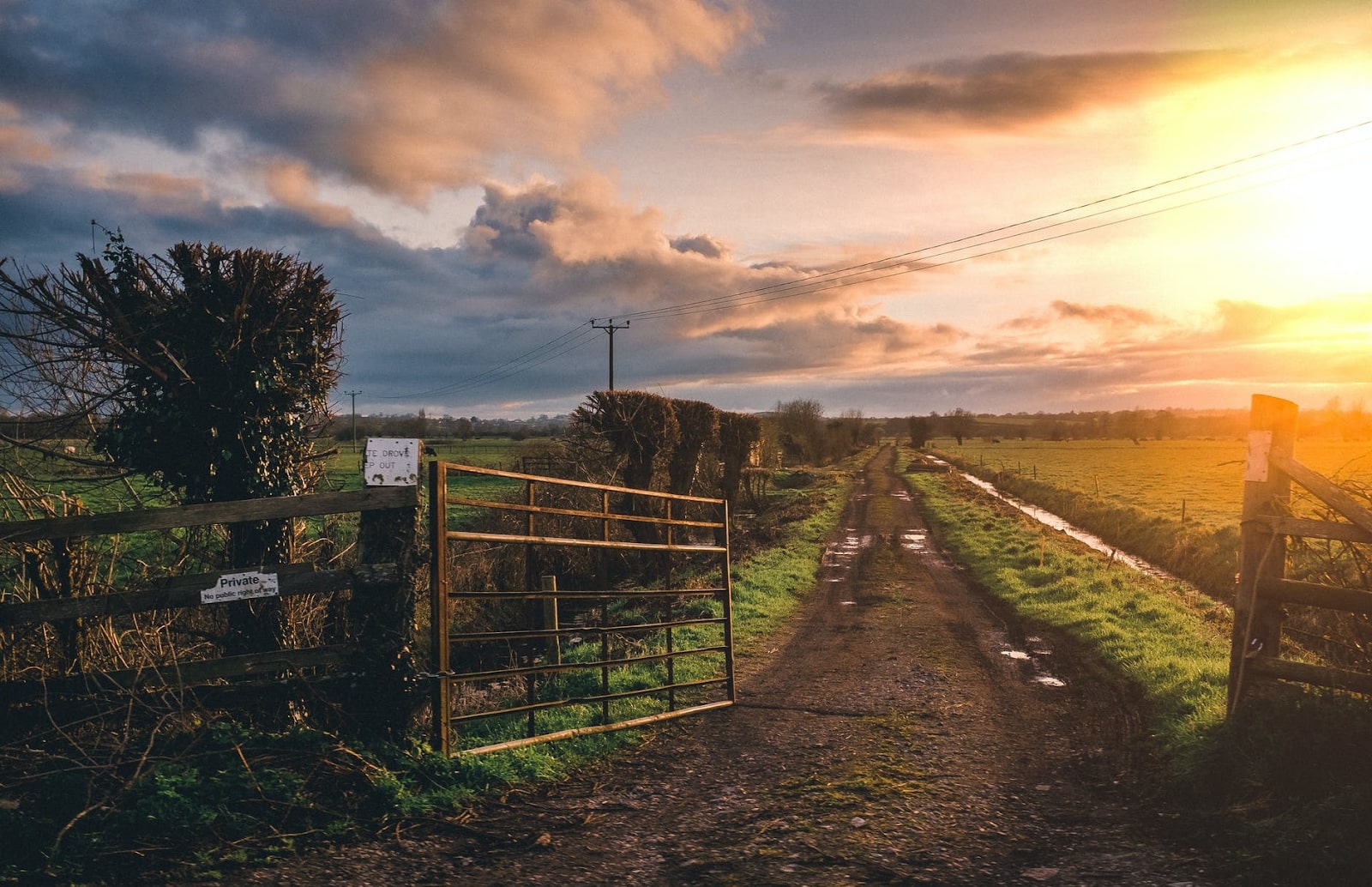Take a minute to think about fences. Many times these fences are created for protection; they keep pets from running away, guard your home and possessions from damage or theft, or stop unwanted visitors from entering your property.
They’re clearly visible, and those who cross these boundaries do so knowing there may be consequences -- but you can unlock the gate to let in those who you trust to respect your space when you’re ready.
Now think about your adult child struggling with addiction. You open your heart and your house to them, without any fences or boundaries, and they continue to take what they can without thinking about the consequences; that’s not unusual behavior for those deep in the throes of addiction.
They’re already struggling so much; it only makes perfect sense that you don’t want to build a fence around your life and close yourself off from continuing a relationship with them. You want them to continue to feel welcome, you want to do what you can to help and support them. You don’t want to do anything that makes them feel rejected, hurt, alienated, or adds to your pain, and you also know you can’t keep letting them in uninvited.
The truth is that you need these boundaries to protect yourself as you find the strength and empowerment to help your addicted child inch toward choosing recovery. With some guidance and the right approach, these — the RIGHT boundaries — will work to strengthen your relationship with your child instead of damaging it or pushing them further away.

Have you recognized these signs that it’s time to start thinking about boundaries?
Often, mothers of addicted children are too close to the situation to understand that it’s time to start creating boundaries. Consider these symptoms:
Have you found yourself trying these approaches?
- 1You think bargaining will help. For example, you tell your addicted child that you'll provide them with a car to use if they look for a job or go to work.
- 2You plead with them to change. You say, "Honey, I love you so much and it hurts to see what's happening to you. Please go get help -- it would mean so much to me and your family."
- 3You think silence is the best way to keep peace and say nothing. You avoid turmoil deliberately because you know so much conflict isn't good for anyone.
I want to recommend trying another approach — learn why.
Conversations with addicts almost never go the way the parent wants them to go. Every conversation with an addict always comes back to the disease trying to get from you what it needs.
As you may already know, your concept of logic and reason doesn’t get you anywhere. When you state what you think is a “boundary,” the disease will try to figure out a way around it. You can do nothing about how the disease behaves.
You do have 100% control over how you behave in your end of the dialogue, so let’s focus on that. One of the keys around how to set boundaries that strengthen your relationship instead of harming it is in how that boundary is expressed.

Here’s something you can do today.
I have something I want you to try, and it involves learning how to communicate your own needs, calmly and clearly. It is 100% about you. Mastering this is a critical step towards creating “real” boundaries, transformative boundaries. Which are very different from wishes or fantasies. Here’s a guide to take you through this.
Set aside just 5 minutes of quiet time on your calendar for the next 3 days in a row; consider this as an appointment with yourself. Put your phone in another room, turn the notifications off, and document the results of your experiment here, on the 5-Minutes of Quiet worksheet.
Download "I Will Communicate My Needs (calmly)"
Ready to learn the next step towards setting boundaries?
Want to go deeper into how to deliver truly “Transformative Boundaries” with love and support? And want to get some guidance on how I chose my actual “Transformative Boundaries?”
Click below to watch my workshop. Listen in as real Moms apply this approach in their own lives with their addicted adult children.
Watch my workshop on setting Transformative Boundaries

I hope you find a pocket of joy in your day today.
Reach out anytime, because I care.
Barbara
Certified Family Recovery Specialist (CFRS)

I have twin boys (adopted) both addicted to pot with emotional problems. I find your info very helpful
Thank you, Barbara. (Good name)
This is very well said about boundaries. Have heard about boundary setting for years but the example of a fence is excellent. Thank you.
Thanks for sharing Barbara. I appreciate it! -Another Barbara
Your emails are a comfort! This is the most painful experience.
My daughter won’t speak with me.
HI Suzanne, I’m glad the emails are helping. Your “daughter” not speaking to you is not actually your true daughter. It is the disease of addiction, which behaves in ways unimaginable to those of us who don’t have it. -Barbara
I am so thankful for this program! Transformative Boundaries has truly transformed me!
Whether or not the change comes sooner or later for my adult son who is struggling with addiction behaviors, I have experienced more positive change in the past 12 weeks, than I have in the past 12 years! The new mindsets and new skills developed for me have been truly transforming!!
I am still amazed at the power of applying the truths in this program, and how they really have given me back peace and joy that I wasn’t sure If I would have ever again!!
Thank you so much!!
Raquel McQueen
Thank you so much Raquel! You are a person who has dug right in from day one and, one step at a time, made every concept your own and applied it to the unique circumstances of your family. So, thanks for your kind words AND please also give yourself a great big pat on the back for courage and a job well done. Barbara
Thank you for the simple guidance. I’m believing in my child.
Welcome Gloria
Just found you… nice to know there are others that understand. My daughter is 54 live way. we don’t talk about her addiction , she denies it.. her children hurt … it is in my heart all the time
It’s wise of you not to talk about her addiction. Instead focus on doing what you can (if anything) for the kids – being their strong role model, Mary.
I needed this today.. Thanks Barbara
You are very welcome Carol. Thanks for the note.
This is such a great blog. Thank you Barbara
Welcome Donna, thanks for the note.
Dear Barbara
Just want to thank you very much for this helpful website. You have explained it in a better way. Thank you again. Love maria
Thank you so much Maria. That’s my goal.
The information was great….Barbara, you never cease to amaze me!
Aw, JoAnn – thanks so much!
I like how the blog gets right to the heart of transforming your relationship with your addicted child which is by setting boundaries with them. It’s a great blog!
Thank you very much Maureen. So appreciate you.
The fence brings me a visual imagine in my mind that allows me to see protection around myself. Boundaries for ourselves are so important and I will remember this image.
Thanks so much, Cathie. That was exactly what I was hoping might happen – that the fence would help clarify who boundaries are for.
I am learning how to take back my life, taking care of my needs and clearly stating what I will accept and what I won’t. I am regaining control of my home and living with less stress. So grateful for Barbara’s teaching, wisdom, and dedication to my growth and the growth of her clients
Thanks Bonnie. You are doing a great job in a difficult situation indeed.
In the world of addiction where I didn’t know what to do next, Barbara showed me how to change my approach to this terrible disease that possessed my daughter. I am living my life again after so many years ,despite whether she is in active addiction or not. She has noticed a change in me with this course and with the constant support of Barbara and the other parents in the group. My daughter has the responsibility for her life back where it belongs…in her own hands.
Thank you so much, Pat. Your relationship with your daughter is indeed stronger than ever, and we see that so often.